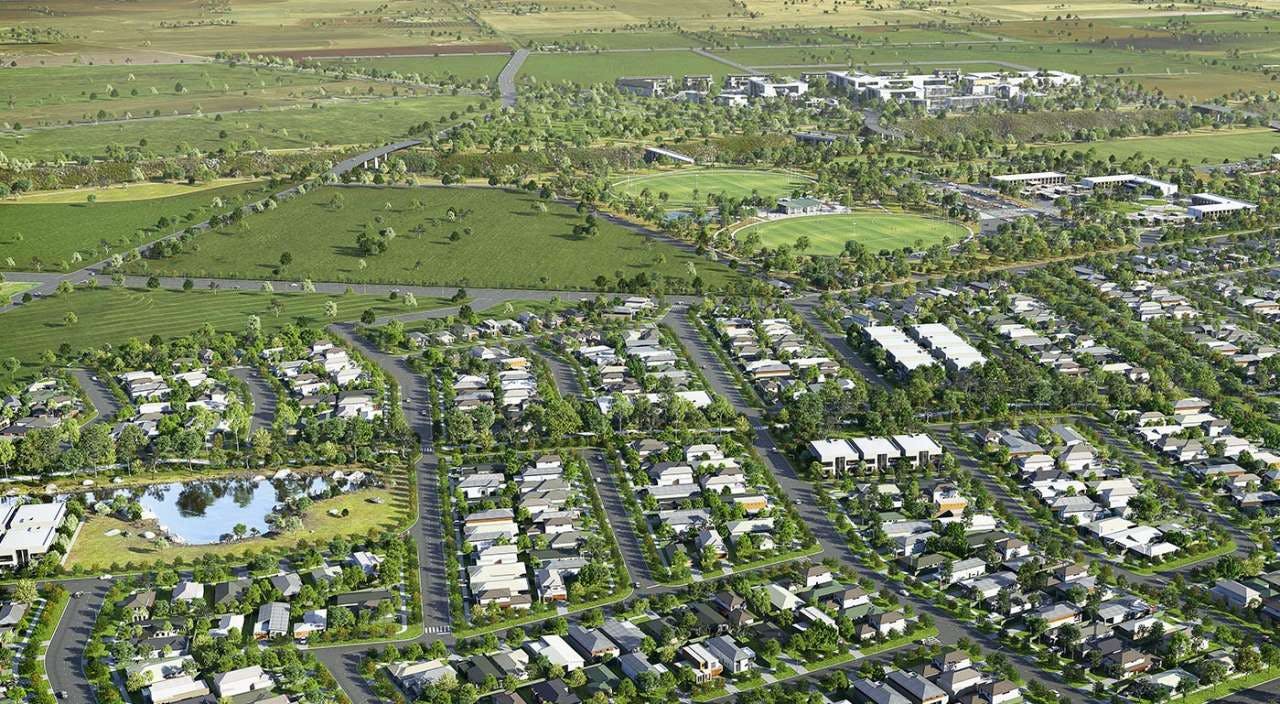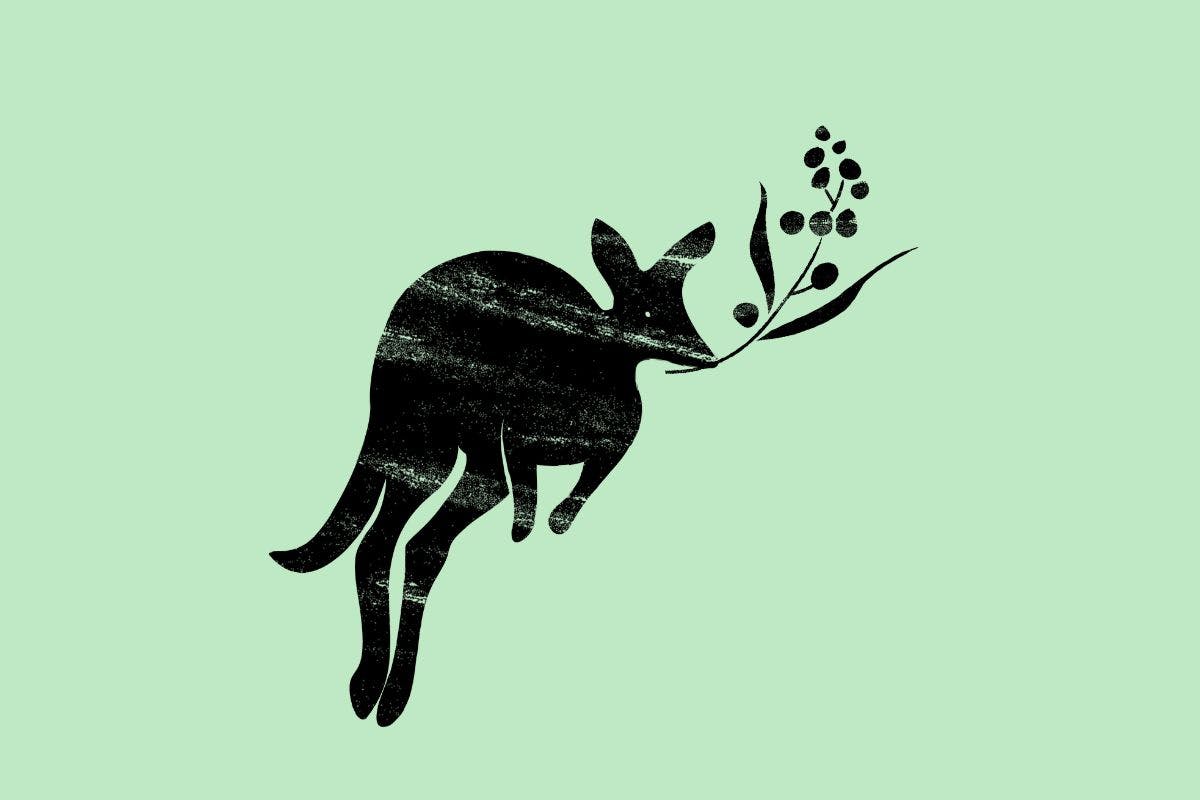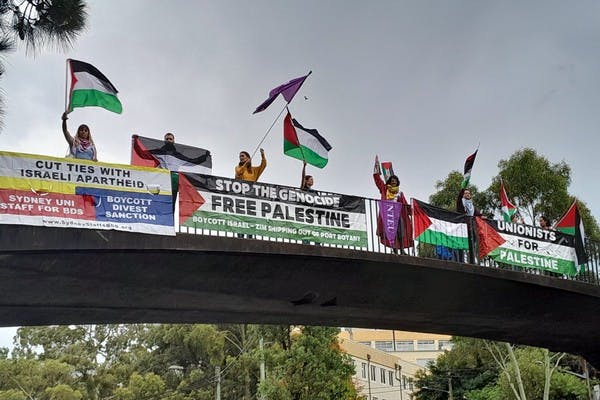Published: 24 May 2019
Last updated: 4 March 2024
An Israeli psychotherapist from Jerusalem sat side by side with a Palestinian physiotherapist from Hebron to discuss the cross-cultural projects they had established and were hoping to expand.
Professor Esti Galili-Weisstub is director and founder of Israel’s Binational School of Psychotherapy. She described the first group of 14 trainees from Israel, the West Bank and Gaza currently completing the school’s original course. “It had to be free of charge, since the Palestinian students can’t afford to pay. There are frequent problems with permits for them – in fact, one student who did not receive a permit did the entire course via skype, a presence on the iPad. Students who’ve never met people from the ‘other side’ face to face, sit together, train together, and share the stories of the cases of traumatised children they are supervising. All the trainees bring their experience, pain and need to be heard. They receive support from each other, and develop relationships. It’s unbelievably meaningful. We already have 30 applicants for the second course, even before we know if we can fund it.”
Hebron physiotherapist Dr Abdel-Rahman described Road to Recovery, a program co-ordinating Palestinian and Israeli volunteers taking sick Palestinian children to hospitals in Israel, for treatments they cannot receive in the West Bank – such as kidney dialysis.
The divide between the West Bank and Israel requires volunteers from both sides; no single volunteer could make the trip, so the organisation has a roster of Palestinian drivers, and Israeli drivers who take over once the children cross the Israeli checkpoints that separate the two societies. “If we didn’t do this, it could cost them hundreds of dollars a week – more than their monthly salaries. I know of one man who sold his house to pay to take his child to dialysis. That’s changed now that we have 2000 volunteers making these trips daily with the children. There is no doubt that it saves lives – and reduces stress. One mother described to me how before she used to get up in the early hours of the morning and cross a field chased by wild dogs to get her child to the checkpoint.”
[caption id="attachment_28529" align="alignnone" width="300"]
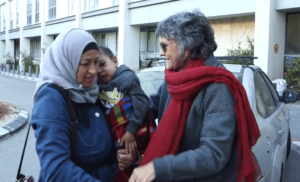 WATCH: The impact of Project Rozana’s volunteer driver program in the West Bank and Israel[/caption]
WATCH: The impact of Project Rozana’s volunteer driver program in the West Bank and Israel[/caption]Listening to the medical experts were Australian rabbis and imams, Australians from all walks of life and faiths and the evening’s co-sponsors – prominent Jewish businessman David Gonski AC and NSW politician Jihad Dib, the first Muslim MP in the state’s lower house.
Gonski learnt about Project Rozana on a trip to Israel in 2017, commemorating the centenary of the last Australian cavalry charge of World War 1. “My wife is a paediatric dermatologist, my daughter has almost completed her paediatric training, so we asked to visit some medical projects,” Gonski said. “When we saw Project Rozana we decided to support it because it works with both sides of the conflict, and the ‘haves’ are sharing with the ‘have nots’. “
Gonski met Dib when he was conducting the federal education review which bears his name. Dib was then principal of Punchbowl High, turning around a school with a problematic reputation. He says what attracted him to Project Rozana was its humanitarian nature. “That puts it above politics. I’m a parent, how would I feel if my child was unwell and we couldn’t get treatment because of where we lived? I believe we shouldn’t bury our heads and say ‘There’s nothing I can do.’ There’s always something you can do. It may be small for you, but it can be life changing for someone else. We may not resolve this conflict, but it doesn’t mean we shouldn’t try to help,” Dib said. “Look at the diversity in this room – there’s so much the world can learn from Australia.”
[caption id="attachment_28523" align="alignnone" width="298"]
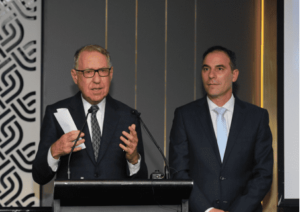 Event patrons David Gonski AC and Jihad Dib MP[/caption]
Event patrons David Gonski AC and Jihad Dib MP[/caption]However, Muslim and Palestinian participants have been criticised in Arabic newspapers and on social media for attending the fundraiser, with accusations they are “normalising” relations with Israel, instead of being part of the resistance.
Head of the Palestinian delegation in Australia Izzat Abdulhadi rejected this in writing. “The exchange of medical expertise to improve and save the lives of ailing and critically ill Palestinian patients is entirely removed from the political sphere, and thus cannot be considered ‘normalisation’ in any proper sense of the word … To be opposed to this is to be opposed to the only avenue of life-saving treatment available to many Palestinians.”
The co-existence displayed in Sydney is increasingly rare inside Israel.
Ron Finkel, the founder of Project Rozana, concedes this project, with its emphasis on mutual respect, is swimming against the current political tide in Israel. “Yes, but we’re swimming for something. We are giving people something they crave – hope. We’re Team Hope. The hospital context shouldn’t be the exception – it should be the rule. That’s my aim.”
[caption id="attachment_28524" align="alignnone" width="239"]
 Prof Dame Marie Bashir and Dr Jamal Rifi AM[/caption]
Prof Dame Marie Bashir and Dr Jamal Rifi AM[/caption]For donation visit: PROJECT ROZANA
Photo: Ruth Rosen, left, David Gonski, Dame Marie Bashir, Dr A. Abdel-Rahman, Ron Finkel and Professor Esti Galili-Weisstub at the Project Rozana Hand in Hand dinner in Sydney on Thursday night. Credit: Project Rozana


